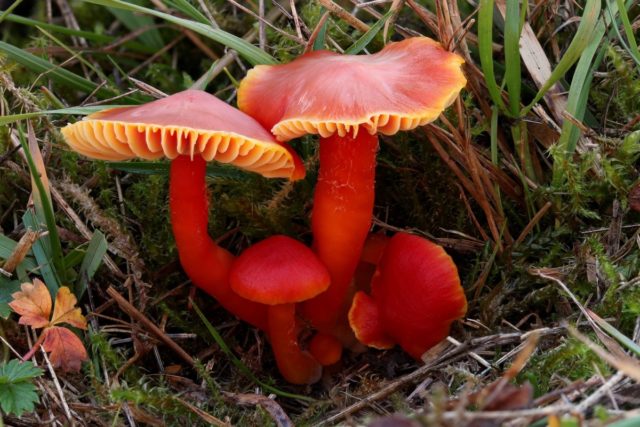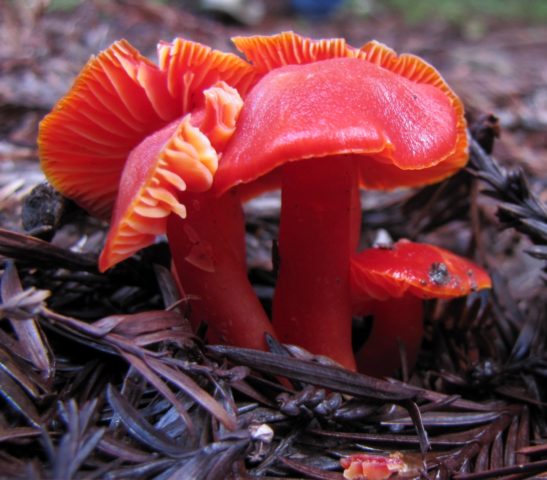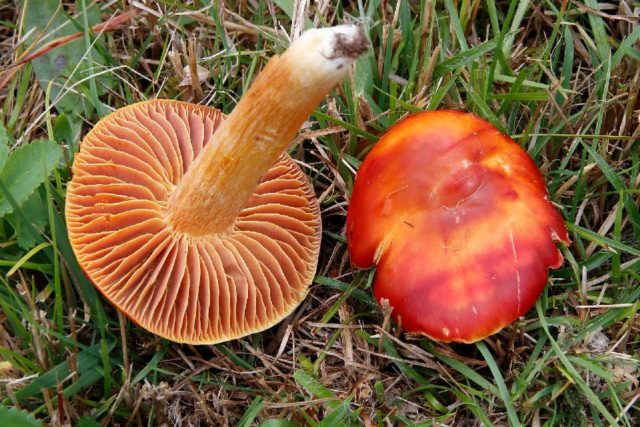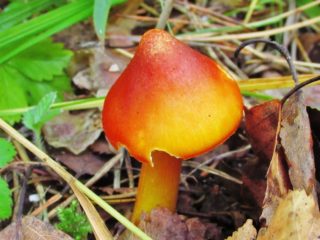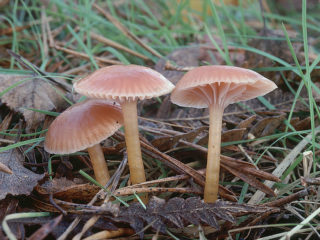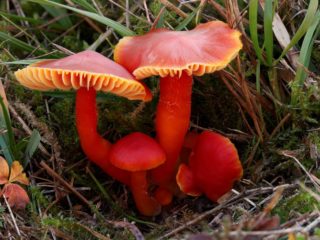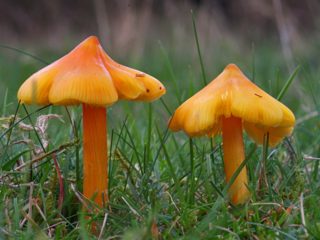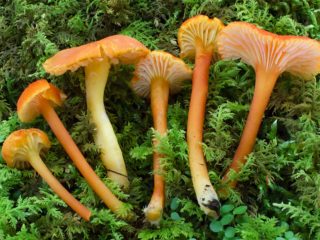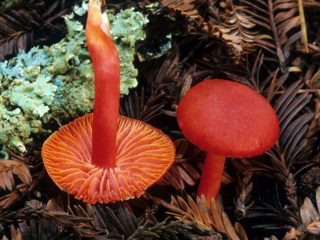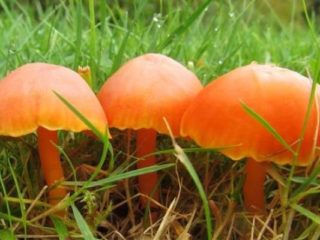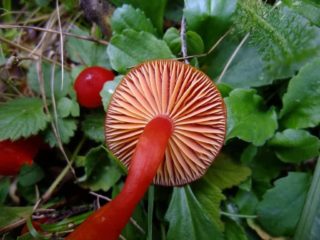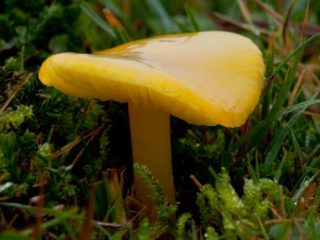Content
Crimson hygrocybe is an edible specimen of the Gigroforov family. The mushroom belongs to the lamellar species, it can be distinguished by its small size and bright red color. In order not to harm your health and not to collect inedible copies, you need to know a detailed description, see photos and video materials.
What does a crimson hygrocybe look like?
You should start your acquaintance with a view with external data. The cap in young bell-shaped specimens, as it ripens, partially straightens, leaving a slight rise in the center. The furrowed surface is slimy, bright red or orange in color.
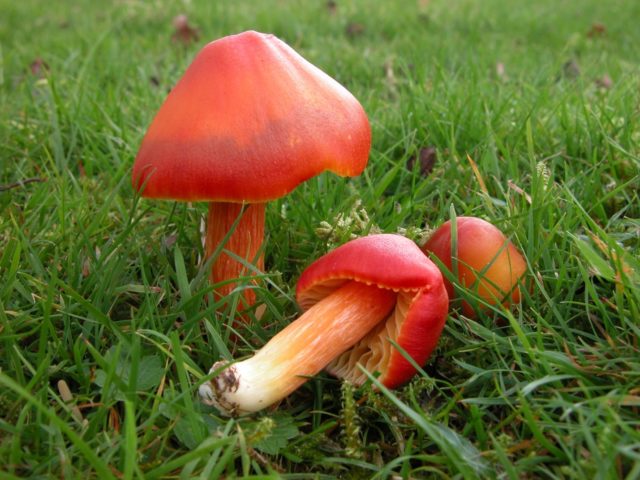
In rainy weather, the mushroom becomes covered with mucus.
The spore layer consists of thick, sparsely planted plates. At the beginning of growth, they are painted in a pale orange color, then they become deep red. Reproduction is colorless, medium-sized ovoid spores.
The hollow stem is thick and long. The surface is striated, bright red. The reddish flesh is strong, fleshy, with a pleasant mushroom taste and aroma. Due to its high nutritional qualities, the mushroom is widely used in cooking.
Where does the crimson hygrocybe grow
Crimson hygrocybe grows in mixed forests on acidified soil. The species is widespread, settles in close groups in open places. Fruiting from June to August. Widely distributed in Siberian forests and the Far East.
Is it possible to eat crimson hygrocybe
Crimson hygrocybe is an edible specimen. Due to its good taste and aroma, the mushroom belongs to the second group of edibility.
False doubles
Hygrocybe crimson, like any representative of the gifts of the forest, has similar twins. Such as:
- Cinnabar red - an inedible member of the family. It can be recognized by a small open hat of orange-red color. At a young age, the surface is scaly; as it grows, it becomes smooth. In rainy weather, the cap becomes covered with a mucous layer. The cylindrical stem is fragile, thin, colored to match the cap. Red-orange pulp without pronounced taste and smell. The species is widespread in open forest glades, in mossy grassy forests, in a swampy place.
Fruits during the entire warm period
- Crimson - this representative belongs to the 4th group of edibility. The small fruiting body has a cone-shaped cap, which straightens as it grows. In adult specimens, the surface is spread, and the edges are transparent. In wet weather, the scarlet skin becomes covered with a mucous layer. The leg is thin and long. The hollow stem is red on top, becoming orange closer to the base. Prefers damp, open areas. Due to the lack of taste and smell, the species has no high nutritional value.
Fruits in autumn before the first frost
- Intermediate - conditionally edible species. Grows in spruce and deciduous forests on fertile soil. The fruiting body is small, the cap with broken edges is red-brown. The fibrous stem is thick and long.Whitish pulp without a pronounced taste and smell.
The mushroom has no nutritional value
The crimson hygrocybe differs from all of the above twins in its large size.
Collection rules
Mushroom picking is carried out in dry, sunny weather. Since the mushroom absorbs toxic substances like a sponge, a place for collection is chosen far from roads and industrial enterprises. When a species is found, so as not to damage the mycelium, it is cut off with a sharp knife or carefully twisted. The place of growth is covered with an earthen or deciduous substrate.
Since the crimson hygrocybe has twins that are not eaten, it is important to be sure of the authenticity of the species. Experienced mushroom pickers recommend, when meeting with an unfamiliar specimen, not to pluck it, but to walk by.
Use
Crimson hygrocybe is appreciated by mushroom pickers because of its pleasant taste and smell. After heat treatment, the mushroom harvest is consumed fried and stewed. It can be preserved and frozen for the winter. Pickled mushrooms are considered the most delicious.
Despite the edibility, crimson hygrocybe is not recommended for children under 7 years old, pregnant women, people with stomach diseases.
Conclusion
Hygrocybe Crimson is a delicious mushroom that grows in open areas in mixed forests. Bears fruit in the second half of summer. In cooking, it is used fried and canned. Since the mushroom has false counterparts, it is important to know the external data, view photos and videos.
